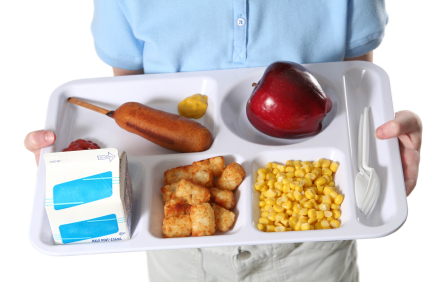The outcry over the USDA’s announced end to Philly’s excellent Universal Feeding program–a program that automatically enrolls poor children in the federal free school meal program and which I wrote about the other day–is getting louder. And the ironies are coming faster, as well. From today’s Inquirer:
Sen. Arlen Specter and Gov. Rendell are protesting the U.S. Department of Agriculture’s decision to end Universal Feeding here – a program wanted by New York and Los Angeles – and go with a plan that would cost the district $1 million more annually in paperwork and likely deprive meals to thousands of children.
Along with scrapping Universal Feeding, hailed as a success, the USDA wants Philadelphia to adopt the federal plan used in New York City, which school officials there say is unworkable.
“I do not understand this,” Specter (D., Pa.) said in an interview this week. “You’d think it’d be pretty hard to be against motherhood, milk, and children.”
This is the kind of bureaucracy we thought we’d left behind. Declaring this successful program “unfair,” the embarrassing Janey Thornton, head of the USDA’s Federal Nutrition Service, insists on scrapping it in favor of an unworkable, more expensive one that will feed fewer kids. Shameful stuff.
The good news here is that the hue and cry over the cancellation makes it far more likely that Universal Feeding will be written into law (instead of only being a pilot program in a single city). Just listen to what the Senate’s newest Democrat has planned:
Specter said he and Sen. Robert Casey Jr. (D., Pa.) [who sits on the Ag Committee] would try this year to include Universal Feeding in a bill to reauthorize child-nutrition programs.
If the reauthorization bill is not enacted, Specter said, he will use his seat on the Senate Agriculture Committee’s appropriations subcommittee to expand Universal Feeding.
In challenging USDA bureaucrats, he said: “I’ve been on the Agriculture appropriations committee a long time, and my tenure exceeds that of bureaucrats.”
You go, Arlen! And displaying a little legislative muscle might just shore up your Philly base for that upcoming primary against Rep. Joe Sestak. Of course, not to be outdone, Sestak is introducing legislation of his own in the House. Meanwhile, the USDA is trying to show they’re not really against motherhood, milk and children. At least, they’re open to them:
“USDA is considering proposals for paperless programs similar to Philadelphia’s pilot project for the upcoming Child Nutrition Reauthorization bill. And USDA will pursue every possible step to ensure that eligible schoolchildren in Philadelphia are served.”
And lest I seem too lighthearted about this, I’ll remind everyone that a “universal” approach to hunger is really the only way to adequately address the problem. First there are the issues of stigma and low levels of literacy in the affected community. But when you simply think about what it takes to get an enrollment form handed out, sent home (to the lowest-income members of our society, mind you), delivered, read, signed, returned and filed, it’s clear that no set of adjustments would every eliminate the risk of failure at any one of these steps. No adjustment, that is, other than universal enrollment. That Universal Feeding has never been made a national program is really an outrage — imagine how many children go hungry every day because of the hurdles our government places between them and a meal. It’s no wonder NYC and LA want to get involved with it. And despite the fact that only schools with high poverty rates would participate, some “critics” think it’s still too risky. This following quote will shock you:
Critics of Universal Feeding wonder whether, by feeding all children in a school, some students who don’t fit the legal definition of poor (130 percent of the federal poverty level) might get free meals.
Whoever said this didn’t even have the guts to be quoted by name. But jeezapete! What kind of country are we anyway? Some kid whose parent makes, let’s say, a whopping 200% of the federal poverty level — which would be $44,000 for a family of four — might get fed and that’s a problem?! No wonder the school lunch program sucks so bad. We’re just not serious about feeding poor kids. Sheesh. Okay. Rant over. Can somebody just fix this, please?




